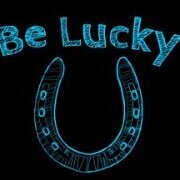Leaderboard
Popular Content
Showing content with the highest reputation on 11/04/2013 in all areas
-
Hmm...my post in your prior thread about Hillary (inviting her to run) was made just before news started to leak out. Go for it, Hill, baby. you know you want it. Coincidence? I think not!1 point
-
http://www.cnn.com/2013/11/04/politics/double-down-2012-campaign/index.html?c=politics1 point
-
John Waters: 'Doing the show is an effective anti-Alzheimer's exercise' The film-maker talks about hitchhiking, his one-man show in Liverpool and what his parents thought of Pink Flamingos Saturday 2 November 2013 20.05 EDT 57 comments Tim Teeman William Burroughs called the film director John Waters "the pope of trash". Waters, 67, was born, raised and still lives in Baltimore, Maryland where his close friend Divine, whom he made a star, also grew up. Waters's best-known movies include Pink Flamingos (in which Divine ate dog faeces), Polyester, Hairspray, Cry-Baby and Serial Mom. He is also a writer, artist and art collector and will perform his one-man show, This Filthy World about film, his fascination with true crime, exploitation films and "fashion lunacy" at this year's Homotopia arts festival in Liverpool. Waters is writing a book about hitchhiking across America last year. How was the road trip? I hitchhiked from my front door in Baltimore to my flat in San Francisco. I last hitchhiked when I was 16. It's a bit different when you're 66. Before, I had fantasies about both how brilliant it could be and how horrible. The reality was nowhere near either extreme. The indie band Here We Go Magic tweeted about picking me up in the middle of Ohio. That was so exhilarating: you'd be waiting in the rain for 15 hours for someone to stop, then someone does. Nobody hitchhikes now. I only saw one other hitchhiker the whole time. Do you like performing? Doing the show is an effective anti-Alzheimer's exercise. I talk about running an amusement park, the stars in my movies, drugs, religion, everything. I've never been to Liverpool but it sounds a lot like Baltimore so my kind of town. Liverpool boys are kind of good-looking and the girls are kickass. What kind of boy were you? My mother was Catholic, my father not. I went to Catholic high school. Every form of education failed me. I was trouble. When I was eight or nine in kindergarten, I told stories about this weird kid in class who drew with black crayons. One day my teacher called my parents to inform them: "That's your son." I was creating characters early. People didn't beat me up. I scared them. I hated authority. I could also get people to do things, I was quite the early director. I could make people laugh, enough to get their defences down, and then brainwash them. Were you into drink and drugs? I got arrested for underage drinking at a drive-in. There were all these girls puking from drink outside my car. I wanted to be a beatnik, then a hippie, then a yippie. I took LSD which gave me the courage to be the person I wanted to be. My parents were scared but supportive. They were horrified by my behaviour but my father paid for Pink Flamingos. He never saw it. I paid all the money back. He taught me business. He sold fire-protection equipment and built it into a big business which my niece now runs. I sold shock, which is also a product. I never had a real job except in a bookstore. I still drink. I smoke pot once in a while, but I used to smoke it every day. I was addicted to cigarettes. It's been 3,926 days since I had my last one, although I fell off the wagon recently and had three. Did your parents watch your films? My dad saw A Dirty Shame (2004). I felt bad about my father knowing what "felching" was. He said: "It's funny but I hope I never see it again" a great review from a parent. My mother asked what it was about. I said: "Sexual addiction," and she said: "Maybe we'll die before that one comes out." They liked Hairspray, Cry-Baby and Polyester, the ones that weren't quite as hideous. My mother is 89 and a great anglophile. We called her the Queen of Lutherville (the Baltimore suburb where they lived). How was your coming out? Before I told them I was gay they were scared I was about to say I was a necrophiliac or something. "Do you have to say it to USA Today?" my father said. They were fine about me being on the cover of [gay magazine] Out, just not the publications their friends read. My parents were married for 60 years. They never had a fight. They were the perfect example of a good marriage. Now my mother wants me to get married. She'll say: "Why aren't you married to that nice friend?" who is usually a successful guy. But the successful gay men I know rarely have other successful gay men as boyfriends. They have hustlers. Marriage equality is a hustler's feeding frenzy of gold-diggers. I campaigned for marriage equality in Maryland because I believe we should have the right to it, but I personally don't want to get married. I don't want to imitate the traditions of heterosexual people. I hate weddings: they make me uneasy. Are you single? I have been in love. Whether I'm good at it is another matter. It's a job. I have "regulars" I see, let's put it like that. Living alone is a great luxury. I love going out. Tonight I'm going to this really cool night where young people dance to the music of my generation. I play colleges. I connect to young people: they see me as their slightly insane uncle. You don't have much choice when it comes to ageing: I don't want plastic surgery and end up looking like those people in LA who look like aliens or science projects. You last made a film in 2004. Why? It didn't make any money. They want you to make independent films for half a million bucks, and for me a film would cost around $5m. It's a great time to be a first-time film-maker, but not me. For the last five years I've been trying to get finance for a movie, Fruitcake. Johnny Knoxville is signed up to play the father, and if someone called tomorrow and said "Here's the money", I'd do it. I'm friends with nearly all the stars of my films Kathleen Turner, Ricki Lake, Traci Lords and Johnny Depp. Divine hated being called Glenn [Milstead, his birth name], and didn't respond to anything but Divine which I named him in 1966. I'm so glad he experienced some success before he died [in 1988]. Do you miss directing? I've made 16 movies, it's not like I haven't spoken. I write, my last book was a bestseller. I create art. Thank God I didn't depend on the movie business to make a living. This Christmas I'll tour my show to 15 US cities. I'd love to write a novel. I'm proud I've been able to do all this, happy to work in my boxer shorts and T-shirt every day. I'm very sharp in the morning and get dumber as the day goes on. John Waters performs This Filthy World on Friday at Liverpool Philharmonic Hall as part of Homotopia's 10th birthday celebrations http://www.theguardian.com/film/2013/nov/03/interview-john-waters-pink-flamingos-liverpool1 point
-
Mexico's murder rate per 100,000 people is 23.7 annually. Brazil does top that with a rate of 25.8. For comparison, the U.S. has a rate of 4.7. The rate for posters here is very low, in fact, I think it is 0.0. in any of the three countries. Murder, not natural deaths, are what we are talking about.1 point
-
Heart wrenching story. I really hope that the father realizes the error of his ways and finds his love for his son. The father would have a long way to go to make it up to his son. Most importantly, I hope this young man continues to get the love and support that he has been getting and that it is enough to give him strength to deal with this terrible emotional blow.1 point
-
I am a former escort. Trust me, criminalising prostitution doesn't helpRhode Island and rural Nevada used to offer protections for adult sex workers. Now it's illegal in RI and more dangerous for all Matthew Lawrence theguardian.com, Sunday 3 November 2013 07.30 EST Today marks an interesting anniversary in Rhode Island. On 3 November 2009, Governor Donald Carcieri signed a bill criminalizing indoor prostitution and overturning a 29-year-old statute which allowed consenting adults to conduct sexual transactions for money behind closed doors. While some rural counties of Nevada allow brothels, Rhode Island laws were more liberal, with escorts working legally in homes, hotel rooms, and spas located in cities and towns across the Ocean State. Rhode Island wasn't a lawless free-for-all, as some anti-prostitution advocates now contend. Pimping – sexual exploitation for the financial benefit of a third party – has always been a felony, and anti-trafficking laws were already in place to guard against forced prostitution. Streetwalking, a public nuisance and a far riskier type of sex work, was considered a misdemeanor, and minors already had legal protection thanks to pre-existing laws pertaining to statutory rape, sexual assault, and coercion. In reality, the passage of the 2009 anti-prostitution law only affected adult sex workers who were either self-employed or working in spas of their own free will. So what was the problem? Most people thought there wasn't one. Anti-prostitution bills had been introduced in the state legislature every year since 2005, unceremoniously fizzling out each time. In 2009, a local television reporter Bill Rappleye canceled a report on the anti-prostitution bill – intended to include comments from irate viewers who visited his blog – after it became clear that most people were ambivalent about the legislation. Rappleye later blogged wistfully that it "doesn't seem like a lot of [viewers] are worried about the exploitation of women here". His equation of prostitution with exploitation of women is a common one, though my own experience as a gay male sex worker runs counter to that misconception. I escorted briefly after college, and several friends – some in graduate school, some with careers – also turned to prostitution for extra cash. None of us felt exploited; we were self-employed men and women, working where and when we wanted. We advertised online and charged what we considered reasonable rates. Rhode Island traditionally has among the highest unemployment rates in the nation, and escorting provided a convenient way for us to manage hefty student loan bills. In one hour with a client I made as much money as I made in a whole week at my part-time retail job; I may have felt financially exploited, but for reasons completely unrelated to sex work. The crusade for criminalization was spearheaded by Donna M Hughes, a socially conservative women's studies professor who founded the organization Citizens Against Trafficking specifically to gather support around this legislation. She and Melanie Shapiro, one of her undergraduate students, led the frenzied charge with a series of emotional but factually challenged newsletters (for example, blaming "spa-brothels" – their own term – for gang stabbings at local nightclubs). Their "organization" seems to have dissolved (or at least stopped doing much) at some point in 2011, making it clear that trafficking was never their real concern. Former Representative Joanne Giannini, who sponsored all five anti-prostitution bills, recently wrote an editorial praising her own legislation with respect to a lurid case involving a Boston man who allegedly kidnapped two Massachusetts teenagers and held them captive in Providence; he is also accused of sexually assaulting one of them. It's sad that someone can equate the behavior of consenting adults with allegations of kidnapping and statutory rape. I testified in opposition to the anti-prostitution bill, presenting myself as a concerned citizen, which I was, and not as a retired sex worker. Hughes, Shapiro, and state police officers favored criminalization; those opposed were a more motley crew, including everyone from professional sex educator Megan Andelloux to Lightning Bolt drummer Brian Chippendale. It probably looked like the "good guys" versus the lewd ones, but that's not a fair characterization. We tried to show how this bill would make things more dangerous. And that's exactly what has happened. Bella Robinson, an escort affiliated with sex workers rights group COYOTE, moved to Rhode Island specifically for the legal protection here. "I've never been more terrified than when I had that SWAT team bust through my door," she says in reference to an earlier arrest at a New Jersey home. Within four hours I pled guilty. The judge told me that I'd go to jail unless I paid $310 a month for a year. In other words he was essentially telling me to go out and turn some more tricks to pay the court. Indoor prostitution hasn't gone anywhere. A spa – easily found on several adult review sites – currently operates near the Providence Journal building on a busy thoroughfare in downtown Providence. And a quick search of popular escort sites reveals both male and female escorts working in the Ocean State, as they do in every other state where prostitution is illegal. The main difference now is that they have no protection. One case from early 2009 illustrates why I think criminalization was such a bad idea. A young attorney from North Providence was moonlighting as an escort, and one evening she was attacked at knifepoint by an unstable client. Knowing that she had the protection of the law, this woman – whose name I don't use to respect her own wishes – called the police and the man was swiftly apprehended. Had this incident happened a few months later, she might have never made that call and her appalling attacker might never have been caught. "Escorts from across the country call me for advice", Robinson says. "And I only have one thing to really tell them: do not call the cops. No matter what." http://www.theguardian.com/commentisfree/2013/nov/03/rhode-island-indoor-prostitution-now-illegal1 point
-
1 point
-
1 point
-
1 point
-
1 point
-
1 point
-
1 point




